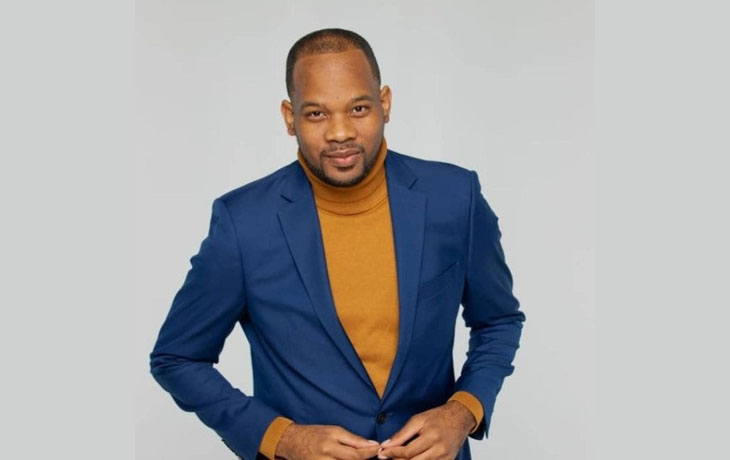Getty Images Stock Photo
(Michigan Chronicle)—We all know someone who makes their daily play at the lottery machine. You, too, probably made your own play of numbers while counting tickets in recent weeks for the big Mega Millions jackpot.
Most people never win or never win it big. The hopes that one could cash in on the big $1.58 billion prize was always alluring. For many, the workplace watercooler or conversations with friends and family if they won would be to quit a job, vacation travel, buy a new home, spend on all the things that come with having a few new zeros in the bank account.
The billion-dollar jackpot ultimately would go to a lucky person who purchase their winning ticket in Florida.
According to the Lottery Advertising Association for Consumer Research or Cash 3, a staggering 639 percent of Blacks reported the highest rate of “ever playing” the lottery, significantly surpassing both Hispanics (43.8 percent) and Whites (41.2 percent). The numbers speak volumes about the strong affinity that Black Americans have for the lottery, highlighting its unique appeal in these communities.
In Black communities, lottery fever is in full swing, and it outshines the participation rates of other racial and ethnic groups This heightened interest in the lottery can be traced back to various factors that make it an attractive game of chance for many, but there is more to the story.

ANDRE ASH
Historic economic inequalities have left Black Americans facing lower income levels and limited opportunities for wealth accumulation. The lottery’s promise of hitting the jackpot and attaining immediate financial relief holds a particular allure for those grappling with economic hardships. It becomes a beacon of hope, offering a potential ticket out of financial struggles.
But the likelihood of winning it big are so slim. Amid inflation wage wars, and uncertainty in the economy, however, some people are trying to figure out the ways of making their money stretch beyond the hope and a prayer of a winning lottery ticket.
“The first thing one must do is adjust their thinking and then adjust their behavior,” said Lisa Howze, (CPA), owner of The Lisa Howze Experience LLC, author and a professional strategist.
Howze says people must be mindful that we’re in an inflationary period, a temporary one she reminds people, yet unfortunately hard period to predict how long it will last. A reality that bases a lot of people’s spending habits and a cautionary one for many as government checks and other pandemic related benefits began to expire. As a result, the taxpayer may want to adjust their decisions accordingly.
“Not only should you save your money, but one should know where your money is going. People really have more money than they think they do,” Howze says. This is all about money management. As she states, people often know they have money coming in, yet their money is leaving back out faster than they can recoup.
“If you carry credit card debt, and you’ve got outstanding balances with a high interest rate, you’re losing a lot of money due to the interest rate.”
Howze says in this area, there is money to be saved.
“If you would rather, have them take your payment over the phone, but it will cost a $10 transaction. That’s where people are losing money as opposed to connecting their checking account to come out automatically.”
“For the person who has not lost their job, they should be preparing for the potential of a downfall such as a job loss, pay cut, layoff. The better you can prepare yourself for them, the better you can position yourself.”
Howze also says to look for ways to make additional money and strongly advises in taking part in an area of the tax code many people often don’t take advantage of —starting a business.
“If you have a skill, maybe you can cook well, people love how you detail a car, whatever you do that is honest, ethical, and legal, and develop that entrepreneurial spirit,” she said.
“Take time to understand where there is a need in the market, and if you are able to fulfill that need by providing a solution—whether it be a product or service—than people would be willing to pay you.”
When it comes to people thinking about what they’ll do with that much-anticipated tax refund check, how to stretch their money, and what to spend it on, another expert advice says to use it to repair your credit.
“This is one of the most important times to be educated about credit, so you’ll know how to wisely use it,” Says Shemka Bishop, owner of The Bishop of Credit, a credit repair and consulting business.
“I always suggest using your credit when paying for items. If you’re using your credit, you’ll be able to maximize the dollars that you’re spending.”
Bishop says when you’re using credit to purchase groceries, you’re getting three times the benefit such as cashback, points, and increasing one’s credit score as you pay it back over time and on time.
“Not only can you make $50 at the grocery store, for example, work for you once, but work for you twice.”
Bishop emphasized credit cards aren’t made to completely live from, but in this economic climate, you might need it, and how to use and make it work for you could be financially helpful.
(Michigan Chronicle Multimedia Journalist Lynzee Mychael contributed to this story.)